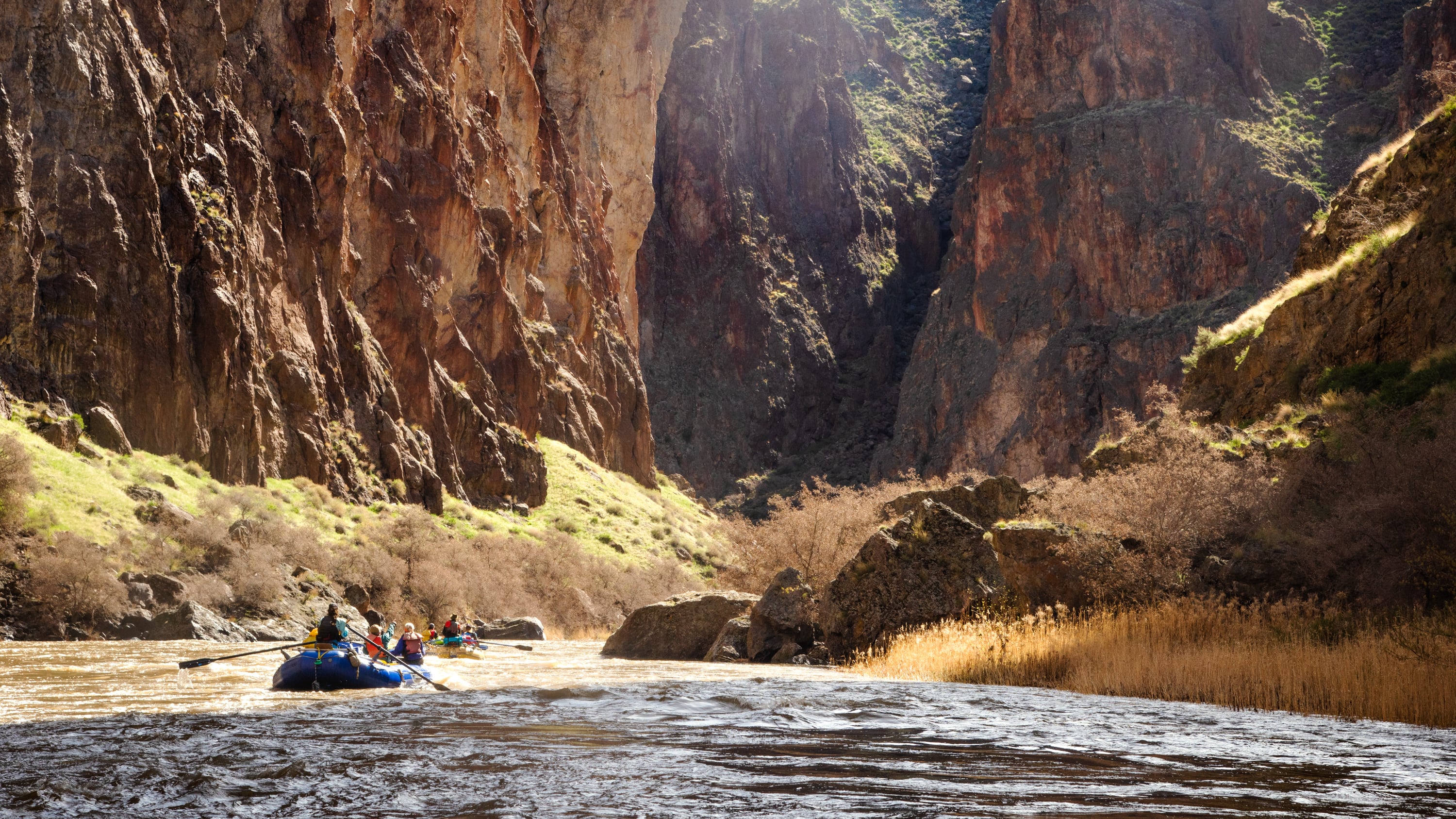Dr. Julie Weikel, a retired large animal veterinarian, has been fighting to protect the Owyhee Canyonlands in Southeastern Oregon for a long time.
How long? “My daughter’s name is Owyhee, and she’s 43 years old,” she says.
Weikel, 78, now lives about 30 miles south of Burns in Harney County but treated animals from all over the West in her practice in Malheur County, which includes Oregon’s portion of the 10 million-acre Owyhee Canyonlands that extend into Idaho and Nevada.
She’s spent countless days hiking and rafting the region over decades, including a nine-day trip from the headwaters of the 220-mile river last year. “The juxtaposition of the desert and the water is unique,” Weikel says. “It’s a place you can peek into for a few days and be forever changed.”
Weikel and other advocates seeking permanent protections for 1.1 million acres of federal Bureau of Land Management property in the region watched with envy last week as outgoing President Joe Biden used the stroke of a pen to create two new national monuments in California: the 624,000-acre Chuckwalla National Monument near Joshua Tree National Park and the 224,000-acre Sáttítla Highlands National Monument northeast of Mount Shasta. (Biden created or expanded 10 monuments during his term.)
Presidents can designate national monuments unilaterally. But as WW reported last year, Oregon’s senior Democratic U.S. Sen. Ron Wyden declined the opportunity to ask Biden to make the Owyhee Canyonlands a monument because he preferred a wilderness designation (“Canyon Standoff,” Sept. 25, 2024).
But any wilderness bill must pass both chambers of Congress. Second District Congressman Cliff Bentz (R-Ore.), who represents the Owyhee, and Wyden cooperated in a last-ditch, bipartisan effort to achieve that. Wyden’s bill passed the Senate on Dec. 20, but Bentz’s slimmer version died in the House without a floor vote. That left conservationists such as Weikel “incredibly disappointed.”
“The word among those who work on such issues is that this administration would have been happy to move on the Owyhee [as a national monument] but wouldn’t do that without the tacit approval of our senators,” Weikel says. “So the monument effort failed because Ron Wyden wanted it to fail.”
After a November sweep that left Republicans in total control in the Capitol, conservation groups are pessimistic Owyhee legislation can pass in the next Congress.
“Leaders in Washington, D.C., are already declaring their intent to sell off public lands, undermine conservation, weaken the Bureau of Land Management, and further elevate the interests of industry over those of the public in federal lands management,” says Ryan Houston of the Oregon Natural Desert Association in Bend.
In 2024, a campaign led by ONDA and the Oregon League of Conservation Voters placed newspaper ads and giant billboards around the state—one is still in evidence at the southeast end of the Morrison Bridge in Portland—and gathered 70,000 signatures for a petition. The goal: pressuring Wyden to acknowledge that getting something (a national monument) was better than nothing. (A national monument provides a level of protection nearly as great but less flexible than a wilderness designation.)
What Oregon got was nothing.
Here’s what people say as President Donald Trump moves back into the White House:
Conservation groups are glum: “Oregon missed out on an incredible opportunity when you look across the West and see monuments designated in California, Arizona and Nevada,” Houston says. “Although we had an outpouring of public support—from Tribal Nations, the governor, businesses, local elected officials, hunters, recreationalists, organizations and so many others—the Owyhee Canyonlands National Monument did not have the support of Oregon’s senators, something the Biden administration required for a monument designation.”
Wyden defends his decision: “Legislation generated in Eastern Oregon creating more than 1 million acres of wilderness permanently in the Owyhee, and protecting the ranching way of life and tribal resources is superior to a monument designation in this case because legislation provides the certainty that everyone wants,” Wyden says. “Here’s why: A monument wouldn’t produce 1 new acre of wilderness, but does open the unfortunate prospect of a Trump administration wasting no time to upend a Biden administration designation and generating an endless cycle of litigation. The fact that the Senate passed my bill, and that Congressmen Bentz has said he wants a bill this year, shows there’s solid momentum to get this legislation done.”
Bentz pledges he and Wyden will persevere: “He and I have reached an agreement, and it’s been a long, very, very, very difficult negotiation,” Bentz told OPB on Jan. 8. “It’s very sad because we were so close. But we’ve agreed that we’re going to go forward.”
To Weikel and ONDA, that’s small consolation. They remember that near the end of President Barack Obama’s second term, a possible Owyhee national monument designation got wiped out by the Malheur National Wildlife Refuge occupation.
This year “was a golden opportunity, and we don’t know when it will come again,” Weikel says. “I think Oregonians should ask Ron Wyden why he will not protect this incredible treasure we have.”
Correction: This story originally misstated Dr. Weikel’s first name. It is Julie, not Judy. OJP regrets the error.
This story was produced by the Oregon Journalism Project, a nonprofit investigative newsroom for the state of Oregon. OJP seeks to inform, engage, and empower Oregonians with investigative and watchdog reporting that makes a significant impact at the state and local levels. Its stories appear in partner newspapers across the state. Learn more at oregonjournalismproject.org.

